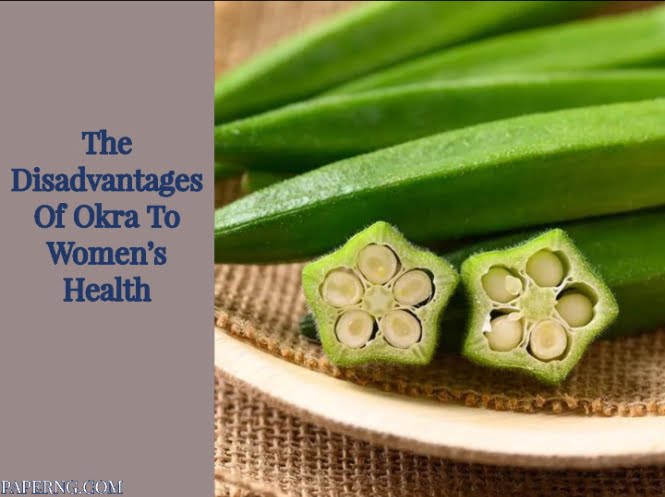The Disadvantages Of Okra
Okra is used in many diets worldwide and is known for its high fibre content. Okra is a fruit, but it is also used as a vegetable in cooking. It has several health benefits, which may be attributed to its rich source of vitamins, minerals, and antioxidants. Despite these tremendous health benefits, okra might actually be potentially harmful to women when taken in excess or by a specific group of women.
Don’t be misled; okra doesn’t have a popular disadvantage but can be potentially harmful. People have been consuming okra for decades, and they have not shown a significant negative sign caused by okra consumption.
Generally, okra can cause gastrointestinal discomfort due to its high fibre content. It can also lead to gastrointestinal issues such as bloating, gas, and abdominal discomfort, especially in individuals with sensitive digestive systems or conditions like irritable bowel syndrome. Fructans in okra can cause bloating, gas, cramping, and diarrhea in individuals with irritable bowel syndrome.
Okra contains a toxic compound called solanine, which can trigger joint pain, arthritis, and inflammation in some individuals.
Disadvantages Of Okra For Women
For women, okra contains isoflavones, which may affect hormone levels. Women with hormone-sensitive conditions like breast cancer, endometriosis, or uterine fibroids should consume okra in moderation and consult their healthcare provider.
Okra’s high fibre content may cause digestive issues in some pregnant or breastfeeding women. Moderate consumption and adequate hydration are recommended.
Okra contains oxalates. Oxalates can bind to minerals like iron and calcium, hindering their absorption. This is particularly concerning for women, who often have higher iron needs due to menstrual blood loss.
Anecdotal evidence suggests that okra consumption might influence menstrual cycles, although scientific research does not robustly support this claim. Women who notice changes in their menstrual patterns may need to consider their okra intake.
Some women may be allergic or intolerant to okra, which can cause symptoms like hives, itching, or digestive problems. It’s essential to note that these potential disadvantages are not unique to women and can affect anyone consuming okra. If you have specific concerns or health conditions, consult your healthcare provider for personalised advice.
FAQs
Can Eating Okra Affect Fertility In Women?
There is no scientific evidence to support the claim that okra directly affects fertility. However, its high folate content is beneficial for women planning pregnancy.
Is Okra Safe To Eat During Pregnancy?
Yes, okra is generally safe and beneficial during pregnancy due to its nutrient-rich profile, but moderation is key to avoiding gastrointestinal issues.
Can Okra Cause Kidney Stones?
Okra is high in oxalates, which can contribute to kidney stone formation in susceptible individuals. Women with a history of kidney stones should limit their intake.
How Does Okra Interact With Medications?
Okra may interfere with the absorption of certain medications, including blood thinners and diabetes drugs. Consult a healthcare provider before making dietary changes.
Are There Any Specific Disadvantages To Okra For Women Compared To Men?
Women may be more susceptible to iron absorption issues due to menstruation and should monitor their okra consumption accordingly.
